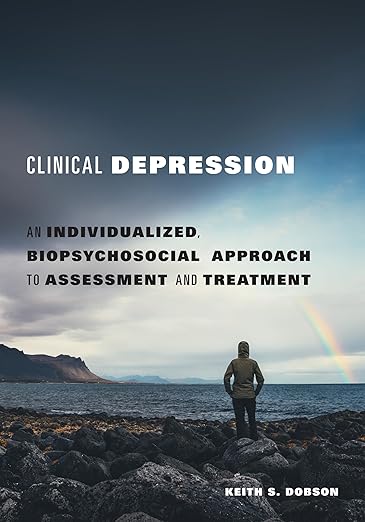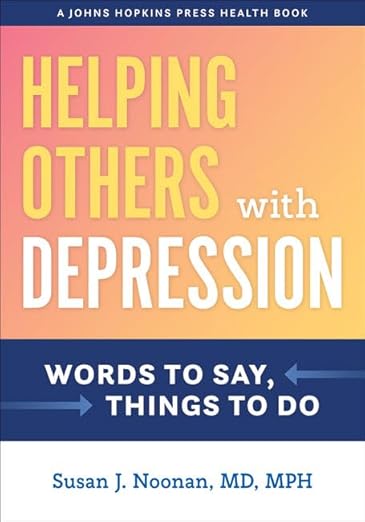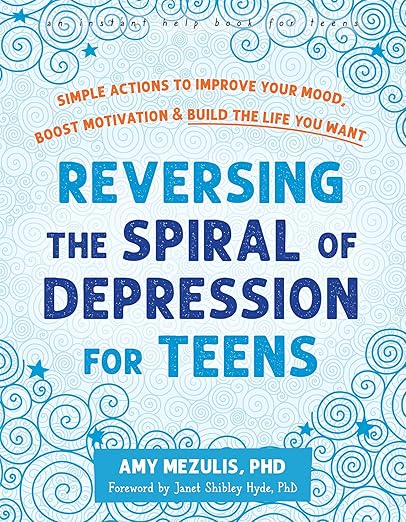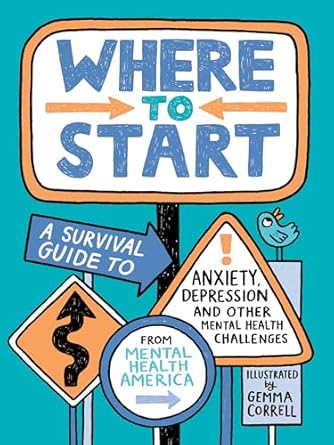Depression
A depressive disorder is an illness that involves the body, mood, and thoughts. It affects the way a person eats and sleeps, the way one feels about oneself, and the way one thinks about things.
A depressive disorder is not the same as a passing blue mood. It is not a sign of personal weakness or a condition that can be willed or wished away. People with a depressive illness cannot merely “pull themselves together” and get better. Without treatment, symptoms can last for weeks, months, or years. Appropriate treatment, however, can help most people who suffer from depression.
From Our Collection
Call 988 if You Need To Talk To Someone. Dial 911 if you have an Emergency.
Symptoms of Depression Include:
- a persistent sad mood
- loss of interest or pleasure in activities that were once enjoyed
- significant change in appetite or body weight
- difficulty sleeping or oversleeping
- physical slowing or agitation
- loss of energy
- feelings of worthlessness or inappropriate guilt
- difficulty thinking or concentrating
- recurrent thoughts of death or suicide.
A diagnosis of major depressive disorder (or unipolar major depression ) is made if an individual has five or more of these symptoms during the same 2-week period. Unipolar major depression typically presents in discrete episodes that recur during a person’s lifetime.
Types of Depression
Depressive disorders come in different forms, just as is the case with other illnesses such as heart disease.
Major depression is manifested by a combination of symptoms (see symptom list) that interfere with the ability to work, study, sleep, eat, and enjoy once pleasurable activities. Such a disabling episode of depression may occur only once but more commonly occurs several times in a lifetime.
A less severe type of depression, dysthymia, involves long-term, chronic symptoms that do not disable, but keep one from functioning well or from feeling good. Many people with dysthymia also experience major depressive episodes at some time in their lives.
Another type of depression is bipolar disorder, also called manic-depressive illness. Not nearly as prevalent as other forms of depressive disorders, bipolar disorder is characterized by cycling mood changes: severe highs (mania) and lows (depression). Sometimes the mood switches are dramatic and rapid, but most often they are gradual. When in the depressed cycle, an individual can have any or all of the symptoms of a depressive disorder. When in the manic cycle, the individual may be overactive, overtalkative, and have a great deal of energy. Mania often affects thinking, judgment, and social behavior in ways that cause serious problems and embarrassment. For example, the individual in a manic phase may feel elated, full of grand schemes that might range from unwise business decisions to romantic sprees. Mania, left untreated, may worsen to a psychotic state.
There is a high degree of variation among people with depression in terms of symptoms, course of illness, and response to treatment, indicating that depression may have a number of complex and interacting causes. This variability poses a major challenge to researchers attempting to understand and treat the disorder. However, recent advances in research technology are bringing National Institute of Mental Health scientists closer than ever before to characterizing the biology and physiology of depression in its different forms and to the possibility of identifying effective treatments for individuals based on symptom presentation.
Source: National Institute of Mental Health
Screening Tools
Self-Help Groups
- Advocacy Unlimited
- Alternatives to Suicide
- Depression and Bipolar Support Alliance
- Emotions Anonymous
- Join Rise Be – Warm Line for Emerging Adults
- Mental Health Connecticut
- National Alliance on Mental Illness
- National Alliance on Mental Illness - Connecticut
- National Mental Health Consumers' Self-Help Clearinghouse
- Toivo Support Groups
Apps
Happify
Brings you effective tools and programs to help you take control of your feelings and thoughts.
Learn MoreMindShift CBT
Uses scientifically proven strategies based on Cognitive Behavioral Therapy (CBT) to help you learn to relax and be mindful, develop more effective ways of thinking, and use active steps to take charge of your anxiety.
Learn MoreSpiral Up
A free neuroscience-based app that helps you process emotions and release stress in minutes.
Learn MoreUCLA Mindful App
With this easy-to-use app, you can practice mindfulness meditation anywhere, anytime.
Learn More
Videos
Podcasts
Trainings
- Child Mental Health: Fostering Wellness in Children (Yale)
Mental Health and Older Adults Q&A (National Institute on Aging) - Rumination-Focused CBT for Depression and Anxiety (Association for Behavioral and Cognitive Therapies)
- Treatment-Resistant Depression – Recognition and Treatment (McLean Hospital)
Fact Sheets
Curricula & Lesson Plans
- Blues Program
- Erika's Lighthouse Classroom Education
- Group Interpersonal Therapy for Depression: Manual
World Health Organization, Columbia University
- Nurturing My Mental and Emotional Health
From NIDA
- Peer-Powered Mental Health Curriculum for High Schools
From Active Minds
- Teen Depression Kahoot Quiz
From NIDA
- This is Your Brain on Depression
From Dana Foundation
Research & Data
- National Institute of Mental Health: Statistics
Provides prevalence statistics for various mental disorders.
- PubMed
PubMed comprises more than 20 million citations for biomedical literature from MEDLINE, life science journals, and online books. Citations may include links to full-text content from PubMed Central and publisher websites.
- The Connecticut School Health Survey




